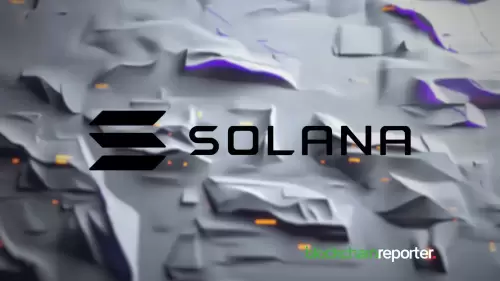 |
|
 |
|
 |
|
 |
|
 |
|
 |
|
 |
|
 |
|
 |
|
 |
|
 |
|
 |
|
 |
|
 |
|
 |
|
加密貨幣新聞文章
Uzbekistan Launches HUMO Token Pilot Targeting Financial Inclusion and Modernization
2025/05/13 17:32

Uzbekistan is launching a pilot for a new blockchain-based digital token, HUMO, which will be backed by sovereign bonds and pegged to the Uzbek sum, sources close to the project told TokenInsight.
The initiative is part of Uzbekistan's broader strategy to modernize its financial system and attract foreign investment. It also positions Uzbekistan as a regional testbed for integrating public finance with blockchain technology.
The token is being developed by several companies, including Uzbekistan-based crypto services provider Asterium, blockchain infrastructure vendor Broxus, and HUMO, Uzbekistan's national payment operator.
HUMO is already a major player in the country's financial system, serving more than 35 million cardholders and processing billions of dollars in transactions annually. The operator is funded by a consortium of Uzbekistan's largest banks and financial institutions.
The new token will be used for both online and offline payments, and it will be available to both individuals and businesses. It is also designed to be interoperable with other major cryptocurrencies, such as Bitcoin and Ethereum.
The token pilot is part of a broader government initiative to promote the development of a digital economy in Uzbekistan. The country is aiming to become a leading hub for blockchain technology and digital assets in Central Asia.
The move comes as several countries around the world are experimenting with their own central bank digital currencies (CBDCs). China is reportedly close to launching its own digital yuan, while the U.S. Federal Reserve is also conducting research into a potential CBDC.
In addition to its work on the HUMO token, Broxus is also known for its contributions to the development of the Open Network (TON) blockchain, which was originally created by messaging app giant Telegram. Broxus was a major contributor to the development of the TON programming language, and its engineers have also developed several key modules for the TON node.
The project is planned to be launched on two technologies - EVM and TVM. The technological foundation chosen for TVM is Broxus' Tycho, a protocol that will ensure support for high loads, scalability, and cost-effective transactions in the Paymaster module. Broxus has experience in developing protocols for smart contracts, having previously created the STON protocol for the TON blockchain.
The initiative is poised to launch with two primary technologies:
• The project will be launched on two technologies - EVM and TVM.
• For TVM, the technological foundation will be Broxus' Tycho protocol, which will guarantee support for high loads, scalability, and cost-effective transactions in the Paymaster module.
• Broxus has expertise in developing protocols for smart contracts, having previously created the STON protocol for the TON blockchain. Its engineers will be involved in the technical implementation of the project.
The project is being launched at a time when there is growing interest in using blockchain technology to improve financial systems and promote financial inclusion. A recent report by the World Bank found that blockchain could help to reduce the cost of cross-border payments by as much as 70%.
It is also expected that the project will be able to attract interest from foreign investors who are looking to invest in promising startups in emerging markets.
免責聲明:info@kdj.com
所提供的資訊並非交易建議。 kDJ.com對任何基於本文提供的資訊進行的投資不承擔任何責任。加密貨幣波動性較大,建議您充分研究後謹慎投資!
如果您認為本網站使用的內容侵犯了您的版權,請立即聯絡我們(info@kdj.com),我們將及時刪除。
-

-

-

-

-

-

- UNISWAP價格預測:看漲逆轉在地平線上?
- 2025-08-05 07:10:59
- UNISWAP(UNI)是否準備好看好逆轉?最近的市場分析表明潛在的上升性,但是哪些因素驅動了這種樂觀的前景?
-

- 比特幣,以太坊,Altcoin Rally:這是最大的嗎?
- 2025-08-05 07:01:56
- 加密貨幣市場正在加熱,以太坊領導了這一指控。這是主要的Altcoin集會的開始嗎?讓我們研究最新的趨勢和見解。
-

-

- 比特幣持有人準備在看跌信號的市場出口
- 2025-08-05 07:00:39
- 長期比特幣持有者顯示出市場退出的跡象,作為關鍵指標閃光燈信號,表明儘管價格提高,但仍有可能進行更正。





























































